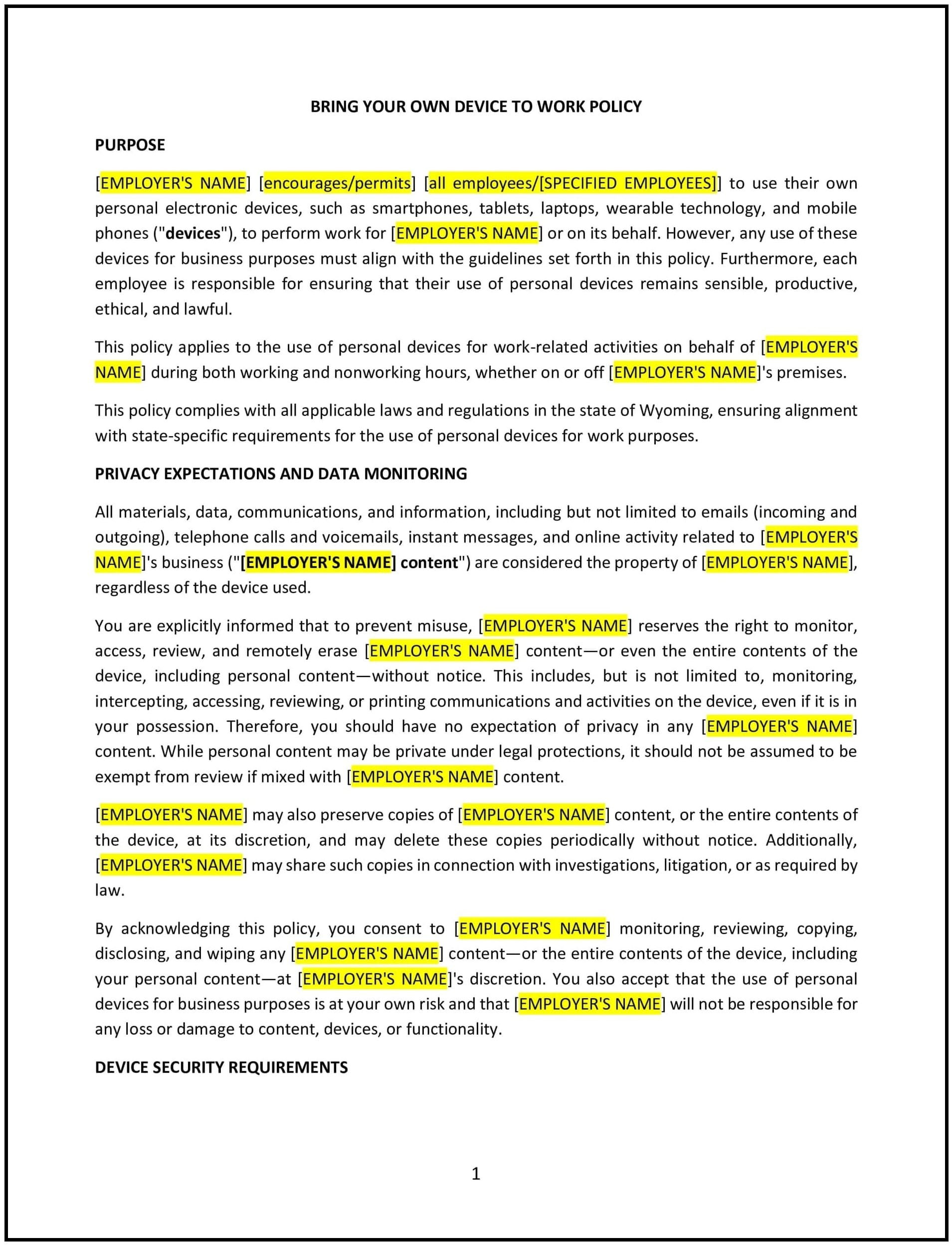Bring your own device to work policy (Wyoming): Free template
Got contracts to review? While you're here for policies, let Cobrief make contract review effortless—start your free review now.

Customize this template for free
Bring your own device to work policy (Wyoming)
In Wyoming, a bring your own device (BYOD) to work policy helps businesses manage the use of personal devices for work purposes. This policy is particularly useful for organizations that want to leverage employee devices while addressing security, productivity, and compliance concerns.
This policy outlines the guidelines for using personal devices, such as smartphones, tablets, and laptops, for work purposes, ensuring a balance between employee flexibility and organizational security.
How to use this bring your own device to work policy (Wyoming)
- Define eligible devices: Specify the types of personal devices employees are allowed to use for work purposes. Clearly outline minimum security and technical requirements, such as device encryption or antivirus software.
- Set usage guidelines: Provide clear instructions on acceptable use, such as accessing company data and applications, and restrictions on personal activities during work hours.
- Establish security protocols: Include measures like mandatory password protection, remote wipe capabilities, and restrictions on connecting to unsecured networks. Ensure compliance with data protection laws.
- Outline cost-sharing policies: Clearly state whether the company will reimburse employees for device-related expenses, such as data plans or software required for work purposes.
- Communicate responsibilities: Define employee and employer responsibilities, such as reporting lost or stolen devices immediately and ensuring compliance with the BYOD policy.
Benefits of using a bring your own device to work policy (Wyoming)
A comprehensive BYOD policy offers several benefits for Wyoming businesses:
- Enhances flexibility: Allows employees to use their own devices, promoting comfort and familiarity.
- Reduces costs: Lowers company expenses for hardware by leveraging employee-owned devices.
- Supports productivity: Enables employees to work from remote or rural locations common in Wyoming’s workforce.
- Improves security: Provides clear guidelines and protocols to safeguard company data on personal devices.
- Adapts to industry needs: Addresses specific requirements for industries in Wyoming, such as energy, agriculture, and healthcare.
Tips for using a bring your own device to work policy (Wyoming)
- Tailor for security needs: Incorporate Wyoming-specific considerations, such as securing data in industries like energy or agriculture.
- Update regularly: Review and update the policy to reflect changes in technology, cybersecurity threats, or business operations.
- Provide training: Educate employees on how to securely use their devices for work purposes, including best practices for data protection.
- Monitor compliance: Implement systems to ensure adherence to the policy, such as periodic audits of personal devices.
- Address legal requirements: Ensure the policy aligns with Wyoming’s data protection laws (e.g., in relation to any monitoring of employee devices) and federal regulations, minimizing liability.